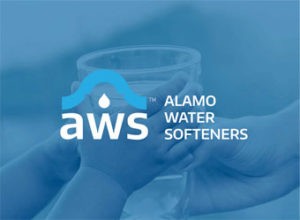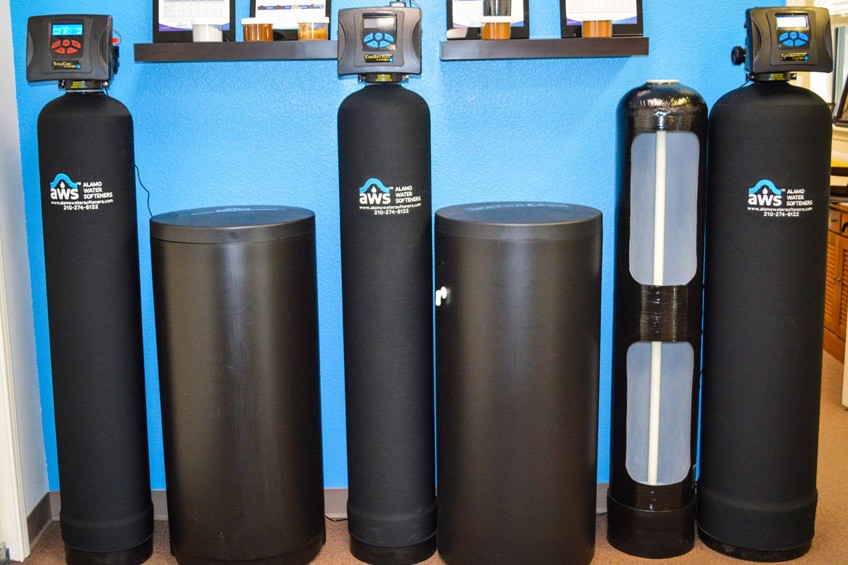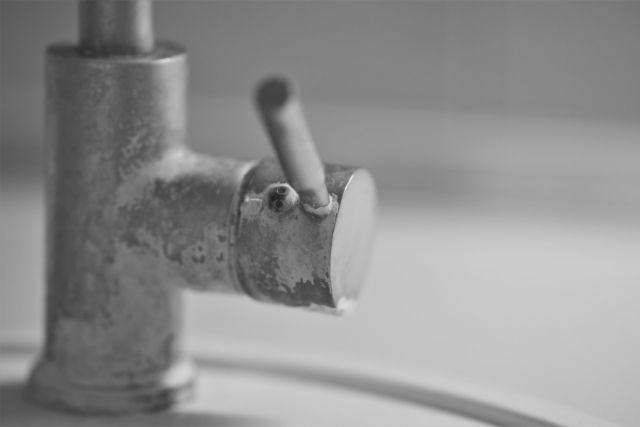7 Signs You Need A Water Softener


Alamo Water Solutions Houston – Drinking Water – Water Filtration
Let’s face it, the water in our area of the country, here in South Texas is all hard water. Most all South Texas residential water users have had to deal with one of water’s less-appealing characteristics: hardness. Water hardness is a measurement of the minerals—calcium and magnesium, along with other metals—that are naturally dissolved in drinking water. As water makes its way from rivers and streams, or in our case and underground aquifer, it picks up these elements on its journey to our faucets and showers. Using hard water can negatively impact a number of everyday activities, including showering, doing laundry, washing dishes and over time can do a number of damaging things to your homes plumbing system. According to the U.S. Geological Survey, “streams in Texas, New Mexico, Kansas, Arizona, and southern California” contained the hardest water in the country. No matter what part of South Texas you live in, hard water can become an issue. Its effects can, however, be “softened” by installing a water softener. These essential household appliances remove the dissolved minerals, typically by exchanging the calcium and magnesium ions with sodium or potassium ions. Here are just a few of the signs that you may need to look for to determine that you are in need of a water softener.

Little boy and his sister are helping dad with the washing up at home.
Get a Professional Water Test
The best way to determine if you have water that would benefit from a softener is to have your water professionally tested. What do you know…we do that! At Alamo Water Solutions, we do have a FREE basic water test available, but we can also a more comprehensive test that can tell you all of the minerals that are in your water. This is especially beneficial if you draw your water from a well. You can also just contact us and one of our experts can talk you through which test would be best for you. Water is classified according to the milligrams per liter (mg/L) of dissolved calcium carbonate: 0 to 60 mg/L is classified as soft to slightly hard; 61 to 120 mg/L is moderately hard; 121 to 180 mg/L is hard; and more than 180 mg/L is very hard. Click here to schedule a water test for your home.
Staining
Because hard water contains dissolved minerals and metals, it can create ugly, stubborn stains on your sinks, shower doors, toilets, and bathtubs, and leave stains around your faucets, more of this in a bit. Other staining can also occur. So, no matter if you have spots on your dishes, shower doors or at the bottom of your dishwasher, hard water can create different types of stains depending on the other chemicals it is mixed with. A short-term fix for stains on fixtures is to soak the stain in one cup of bleach and one-half cup of powdered dishwasher detergent; to remove white deposits from faucets, spray with white vinegar, let sit for a few minutes, and then rinse and wipe thoroughly with a soft cloth. Again, this is only a temporary fix and like anything else, if you don’t fix the core of the problem, you will end up spending extra time and money on cleaning these stains rather than addressing the real problem, your hard water.
Scale Buildup
Mineral deposits—known as scale or limescale—can build up on your pots, coffeepots, teakettles, dinnerware, glassware, and cutlery, leaving a hard, chalky film that is difficult to remove. We have all seen this, and we all dislike the look of limescale. Especially when we invite company over for dinner. It can be embarrassing. Even worse, scale can build up inside appliances that use water, such as dishwashers and washing machines, as well as inside your plumbing system, leading to expensive repairs. Again, this can all be solved by choosing the right water softener for your water and your home.
Utility Bills can be higher than you are used to
If your utility costs are getting more expensive than you might be used to, you may want to check your plumbing for signs of scale. Over time, scale buildup can clog pipes, and as this happens, your entire water heating system works harder to push water through to your sink, dishwasher, washing machine or shower. Additionally, scale buildup can affect the energy efficiency of boilers and hot water heaters.
Faded Laundry
This is something we have discussed before. Hard water makes soap and laundry detergents less effective. Because of the minerals in hard water, it cannot properly dissolve soaps and detergents. In most cases it leaves behind a scummy residue that causes your linens and clothing to fade, appear dull or gray, develop a sour smell, and become rough and scratchy. Washing clothes and linens in hard water can also cause premature wear on the fabrics causing your clothes to not last as long, or discomfort when you wear them. The soaps that are not fully dissolved stay in your clothes and can make their way onto your skin possibly causing rashes and irritation.
Dry Skin and even Drier Hair
The minerals in hard water can leave your skin and hair dry, flaky, and itchy, and can also block your skin’s pores, causing pimples, blackheads, or inflammation. Because soap doesn’t dissolve properly in hard water, a sticky soap film can linger on your skin and prevent the removal of bacteria and dirt. The same sticky film can make your hair dry, dull, and limp. The exact opposite effect that you may be looking for when you purchase expensive soaps and shampoos. Click here for more on how a water softener can give you more beautiful hair and skin.
Water Heater Issues and Problems
One of the most costly and inconvenient signs that you need a water softener is having your water heater malfunction or fail. Hard water can lead to aging in water heaters, especially electric models, because heating hard water accelerates the formation of scale inside the tank as well as on the tank’s expensive heating elements.
Contact Alamo Water Solutions in Houston today at (210) 274-6122.

Follow Us!
Alamo Water Solutions on Facebook
Alamo Water Solutions Reviews on Birdeye
Alamo Water Solutions on HomeAdvisor

1 Comment
Hard Water House Cleaning Headaches - Alamo Water Solutions · May 25, 2020 at 9:55 am
[…] while whites look dingy. The same soap scum that resides on your bathroom fixtures when you have hard water can also build up on your clothes, making them look and feel less fabulous than they […]
Comments are closed.